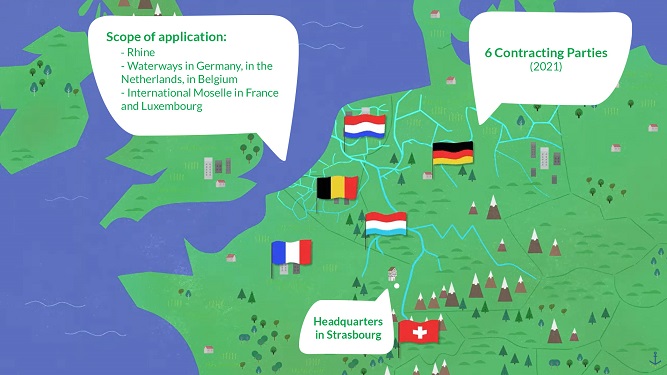Context
River navigation is one of the most environmentally friendly modes of transport. But as with any activity, waste inevitably occurs during the operation of a vessel.
Aware of the environmental challenges for inland navigation, six States decided to put in place international rules governing the collection, deposit, and reception of waste. The Convention on the collection, deposit and reception of waste generated during navigation on the Rhine and other inland waterways (CDNI) came into force on 1st November 2009 in Belgium, France, Germany, Luxembourg, the Netherlands, and Switzerland.
Objectives
The prevention, collection, deposit, and reception of waste arising from vessel operation is a significant contribution to:
- protecting the environment,
- improving the safety of inland navigation,
- improving water and air quality,
- and to the health and well-being of navigation personnel and users.
Principles
The CDNI imposes a general ban on the discharge and disposal of waste generated on board, or any part of the cargo. The exceptions to this ban are strictly regulated.
The CDNI will:
- encourage the prevention of waste production,
- direct this waste to reception stations throughout the navigable waterway network,
- provide adequate financing having regard to the “polluter pays” principle,
- facilitate the monitoring of compliance with the bans on discharging the waste in question into the surface water.

